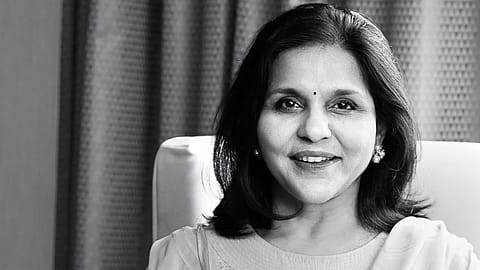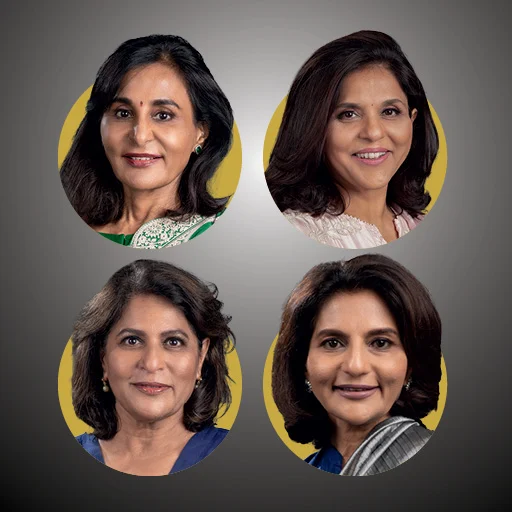India’s healthcare sector is emerging as a global reputation driver, says Sangita Reddy
Showcasing the success of Apollo’s preventive health model, Reddy said a recent survey highlighted that the incidence of non-communicable diseases was significantly lower in villages where Apollo’s model operated compared to neighbouring regions with similar demographics.

As India marks its rise as a hub of innovation, sustainability, and entrepreneurship, Sangita Reddy, joint MD of Apollo Hospitals, opines that the country’s healthcare sector is becoming central to its global image and economic strategy.
Speaking at the PRCAI’s 25th anniversary event, Reddy said healthcare is no longer “just a service industry” but a key element of India’s soft power and economic growth. “The way a nation treats its most vulnerable and the way it commits to bringing healthcare within the reach of everyone reflects its character,” she said.
Apollo Hospitals, which Reddy’s family founded over four decades ago, has been at the forefront of efforts to expand healthcare access in India. What began as an effort to provide affordable treatment to patients unable to travel abroad has evolved into a model combining advanced medical care with preventive health programmes.
“Today, patients from over 140 countries travel to India for treatment,” Reddy pointed out, adding that this is “not just medical tourism, it’s global trust in Indian hands, in Indian hearts, in Indian systems.”
One of Apollo’s early experiments was providing comprehensive health insurance coverage to entire village clusters at a nominal rate. “For the price of your coffee or your beedi, we asked people to put aside a small amount so we could provide complete health coverage,” she explained.
Beyond insurance, Apollo has been integrating primary and preventive care into its operations. A case study by Harvard University and research from the University of Singapore have both examined Apollo’s preventive health model, which encompasses telemedicine, clean drinking water, sanitation, and women’s empowerment.
In the recent survey conducted by the local collector in the villages where the preventive model was implemented, the incidence of non-communicable diseases was significantly lower in villages where Apollo’s preventive model operated compared to neighbouring regions with similar demographics.
“We are now proving that we can reduce the burden of disease while offering advanced care at one-tenth of global prices,” Reddy said.
She emphasised the role of technology in expanding the reach and efficiency of healthcare services. “AI for early diagnosis, remote monitoring, digital tools that reduce friction and increase trust—these are the tools we are building. The future is now when biology is meeting AI,” she said.
Apollo has also focused on integrating traditional knowledge systems, such as Ayurveda, into its health offerings, arguing that they play a role in holistic care. Reddy pointed to India’s public digital infrastructure as a foundation for what she called the “UPI of global healthcare,” which would enable secure and ethical sharing of health data.
Importantly, Reddy stressed equity as a non-negotiable pillar of India’s healthcare future. “Whatever we’re doing, let’s do it for a billion people, not just for the billionaires of this country,” she said. She underlined the critical role women play in healthcare, both as caregivers and professionals, while highlighting the need for better access to healthcare for women themselves.
(INR CR)
“Women are the architects of healthcare and the future of the world,” she said. “No healthcare system can function without women.”
“Let us talk about India’s role in healthcare to our policy makers, our leaders, our employees, and our families,” she concluded. “That’s when all development becomes comprehensive and integrated, and something we can share with the world.”
